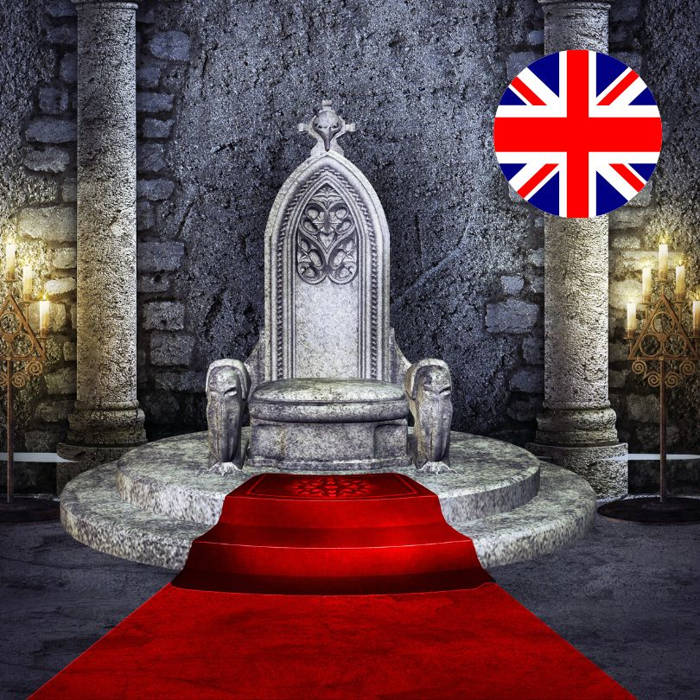
Elizabeth I of England (1533-1603), known as "The Virgin Queen", was one of the most influential monarchs in British history. Her reign, spanning from 1558 to her death in 1603, marked the Elizabethan Era, a period of economic growth, cultural advancements, and the consolidation of England’s power on the world stage. Her leadership not only transformed England into a global force but also made her a symbol of stability and resilience.
In this article, we will explore the life, policies, and legacy of Elizabeth I, as well as her impact on English history.
Childhood and Ascension to the Throne
Elizabeth I was born on 7 September 1533, the daughter of Henry VIII and Anne Boleyn. Her early years were fraught with political instability and court intrigue. When her mother was executed in 1536, Elizabeth was declared illegitimate and lost her status as a princess. However, over time, she was reinstated into the line of succession.
Following the death of her half-brother, Edward VI, and the turbulent reign of her elder sister, Mary I, Elizabeth ascended the throne in 1558. Her coronation brought hope to a nation divided between Protestants and Catholics, and her leadership signalled the beginning of a new era.
Consolidation of Power and Religious Reformation
One of Elizabeth I’s greatest challenges was establishing religious stability in England. Unlike her sister, Mary I, who attempted to restore Catholicism, Elizabeth adopted a more pragmatic approach. In 1559, she introduced the Act of Supremacy and the Act of Uniformity, consolidating Anglicanism as the official religion of the realm.
This move was not without opposition, particularly from Spain and the Pope, but it ensured a relative religious peace in the country and strengthened England’s national identity.
Maritime Expansion and the Rise of England
Elizabeth I encouraged maritime exploration and trade, ushering in an era of British expansion. She supported expeditions by explorers such as Francis Drake and Walter Raleigh, who established new trade routes and colonies in the New World.
One of the most significant events of her reign was the defeat of the Spanish Armada in 1588. Philip II of Spain, angered by England’s support for Protestant rebels in the Netherlands and attacks on Spanish galleons by English privateers, attempted to invade England. However, the English fleet, with superior strategy and the help of adverse weather conditions, managed to defeat the Spanish force, cementing England’s status as a naval power.
The Golden Age of Culture
Elizabeth I’s reign also witnessed an unprecedented cultural flourishing. During the Elizabethan Era, writers such as William Shakespeare, Christopher Marlowe, and Edmund Spenser produced some of the most iconic works in English literature.
Theatre became a popular form of entertainment, with the Queen’s patronage helping to elevate its status. Art, music, and poetry also thrived, establishing England as a cultural hub in Europe.
Foreign Policy and International Relations
Elizabeth I was a master of diplomacy. Despite receiving numerous marriage proposals, she chose to remain single, maintaining her political independence and using her marital status as a diplomatic tool. Her nickname, "The Virgin Queen," stems from this strategic decision.
Under her leadership, England forged alliances and expanded its influence across Europe. She supported Protestant forces in France and the Netherlands, weakening both Spain and the Papacy.
Legacy and Death
Elizabeth I passed away on 24 March 1603, marking the end of the Tudor dynasty. She was succeeded by James I, who unified the crowns of England and Scotland. However, her legacy endured: she left England stronger, with a centralised government, a well-defined cultural identity, and a formidable navy.
Her reign is remembered as one of the most successful in England’s history, laying the foundations for the future expansion of the British Empire.
🌟🌟🌟
Elizabeth I of England was more than just a monarch; she was a strategist, diplomat, and visionary leader. Her ability to govern through crisis, her support for the arts and culture, and her influence in solidifying England as a global power make her one of the most iconic figures in history.
Her legacy continues to resonate in British culture and politics, and her story remains an inspiration to generations. The Virgin Queen lives on in the annals of history!

